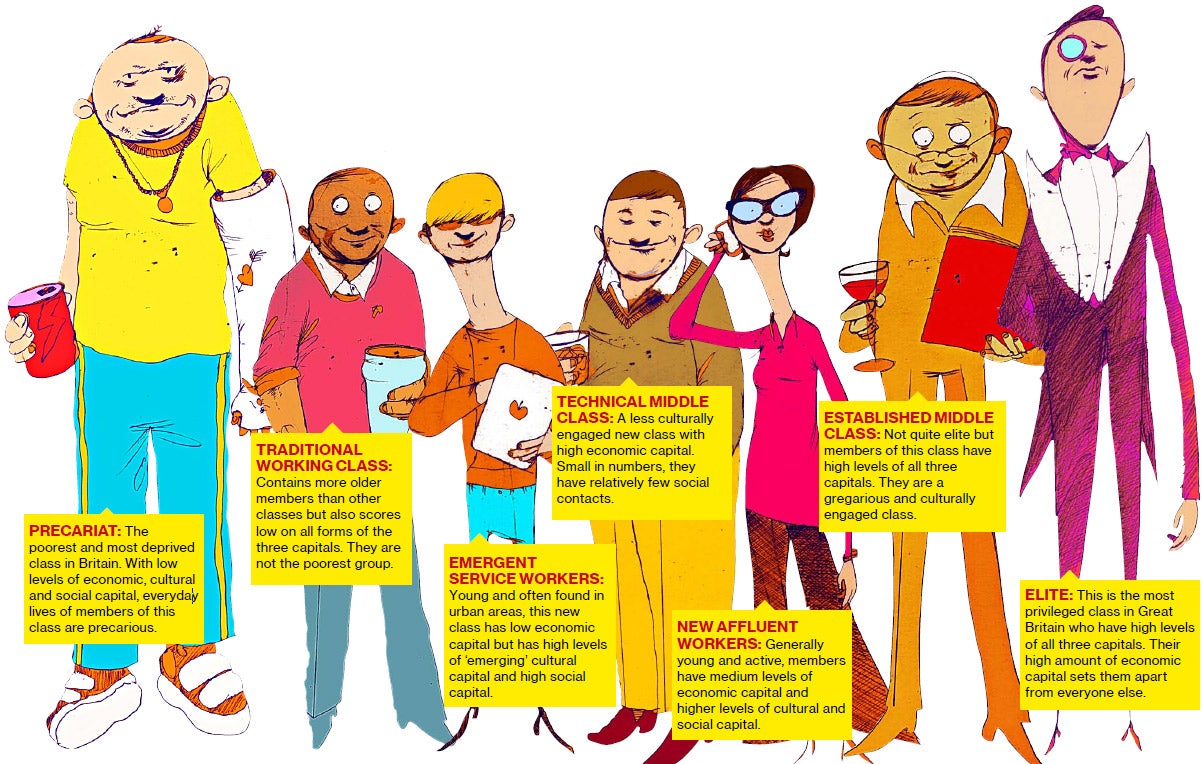Britain now has 7 social classes - and working class is a dwindling breed

Thought shopping at Waitrose and graduating from a Russell Group university is enough to make someone middle class? Think again. According to a new study, the UK population is split into no less than seven different social classes, from the “elite” to the lowly “precariat”.
Which class are you? Click image above to find out
Following a BBC survey of more than 160,000 people, academics established that Britons can no longer be boxed in to the traditional “upper”, “middle” and “working” classes.
Instead, you could be a home-owning “elite” with highbrow cultural interests and savings of £140,000. Their “sheer economic advantage” sets them apart from the other classes, according to Professor Mike Savage of the LSE, and they make up just six per cent of the population.
The findings, presented at a British Sociological Association convention, show that at the very bottom lies the “precariat”. Typically shopkeepers, drivers and cleaners, they represent 15 per cent of people in the UK and lack “any significant amount of economic, cultural or social capital”.
The categories in between are: established middle class; technical middle class; new affluent workers, traditional working class and emergent service workers.
The results were obtained by analysing people’s income, assets, the professions of their peer group and their social activities. Professor Fiona Devine, of the University of Manchester, said: “There’s a much more fuzzy area between the traditional working class and traditional middle class.”
The social classes
Precariat: This is the most deprived class of all with low levels of economic, cultural and social capital. The every day lives of members of this class are precarious.
Traditional Working Class: This class scores low on all forms of the three capitals although they are not the poorest group. The average age of this class is older than the others.
Emergent Service Workers: This new class has low economic capital but has high levels of 'emerging' cultural capital and high social capital. This group are young and often found in urban areas.
Technical Middle Class: This is a new, small class with high economic capital but seem less culturally engaged. They have relatively few social contacts and so are less socially engaged.
New Affluent Workers: This class has medium levels of economic capital and higher levels of cultural and social capital. They are a young and active group.
Established Middle Class: Members of this class have high levels of all three capitals although not as high as the Elite. They are a gregarious and culturally engaged class.
Elite: This is the most privileged class in Great Britain who have high levels of all three capitals. Their high amount of economic capital sets them apart from everyone else.
Join our commenting forum
Join thought-provoking conversations, follow other Independent readers and see their replies
Comments
Bookmark popover
Removed from bookmarks